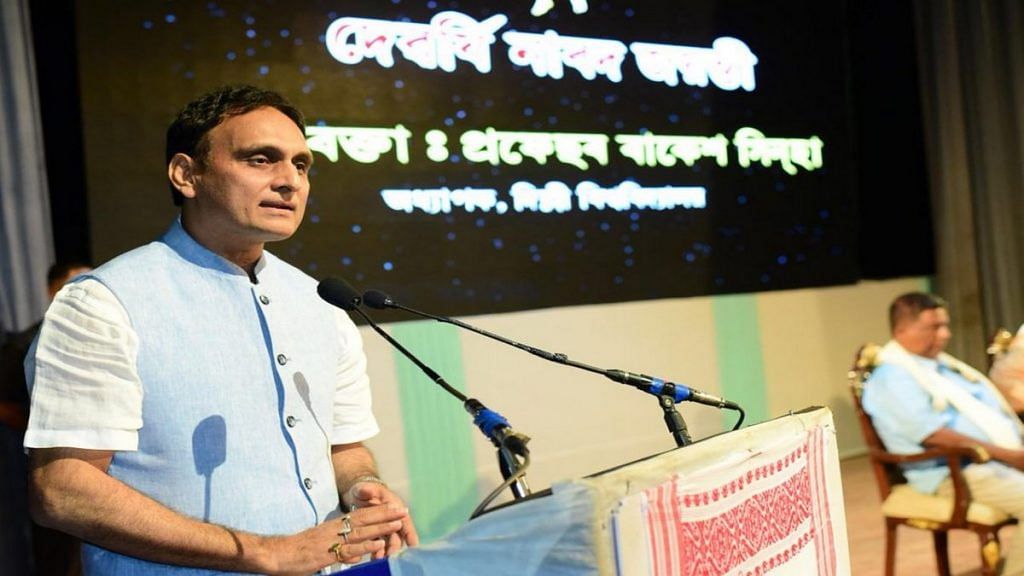RSS ideologue Rakesh Sinha disagrees with RSS pracharak and BJP general secretery Ram Madhav over ‘Glasnost & Perestroika’ in the sangh.
New Delhi: The BJP Rajya Sabha MP and RSS ideologue, Rakesh Sinha, has categorically stated that the three-day Sangh conclave, spearheaded by chief Mohan Bhagwat, was no ‘Glasnost’ for the organisation.
His remarks come three days after BJP general secretary Ram Madhav wrote an editorial in a newspaper, equating Bhagwat’s remarks in the conclave to the reform policies of Glasnost and Perestroika, ushered in by the leader of the erstwhile Soviet Union, Mikhail Gorbachev.
In an interview to an English newspaper, Sinha disagreed with Madhav’s assertions, and said that both terms “are inappropriate for the RSS”.
“Bhagwat has compelled critics to apply Glasnost and Perestroika to their own thought process. Tragically, some people still try to understand Indian institutions and indigenous mode of transformations from a European prism,” the paper quoted him as having said.
Sinha did not name Madhav in his remarks. He also stressed that Bhagwat had discarded the thoughts of former RSS head M.S. Golwalkar, suggesting the latter had nuanced his views in his later years.
He, however, agreed with Madhav’s view that the RSS view of Hindutva includes people from all religion. “The concept of Hindu Rashtra is not theocratic. It is an adjective of the nation, not an objective,” he said.
Sinha had been nominated to the Rajya Sabha by the President and joined the BJP in July.
Also read: Silence speaks louder than words: What RSS chief Mohan Bhagwat didn’t mention
RSS’s Glasnost and Perestroika
In the lecture series, ‘Future of Bharat: An RSS Perspective’, held in Delhi between 17 September and 19 September, Bhagwat appeared to project a softened version of the RSS, saying among other things, that the Sangh was inclusive and that its version of a Hindu Rashtra cannot be without Muslims.
In his column, Madhav argued that the remarks were a sign of the RSS opening up.
“It is a Glasnost moment for the Sangh. In the mid-1980s, Mikhail Gorbachev brought in new ‘openness’ in the thinking and actions of the USSR,” Madhav wrote. “He didn’t reject Communism. He insisted that there was a need for more openness and accommodation”.
Madhav also argued that having effected a Glasnost, Bhagwat should now carry out a Perestroika — restructuring.
“Driving home the new thinking within the rank and file of the organisation requires no less than a Perestroika — restructuring. Bhagwat’s challenge lies in that,” Madhav wrote.
“Bhagwat will lead the organisation for many more years to come. He commands enormous respect within the rank and file. With his clarity, candidness and determination he has the ability to lead the organisation in the direction he wants.”
Also read: Mohan Bhagwat’s idea of India is not a thali of identities but a khichdi: Shashi Tharoor
